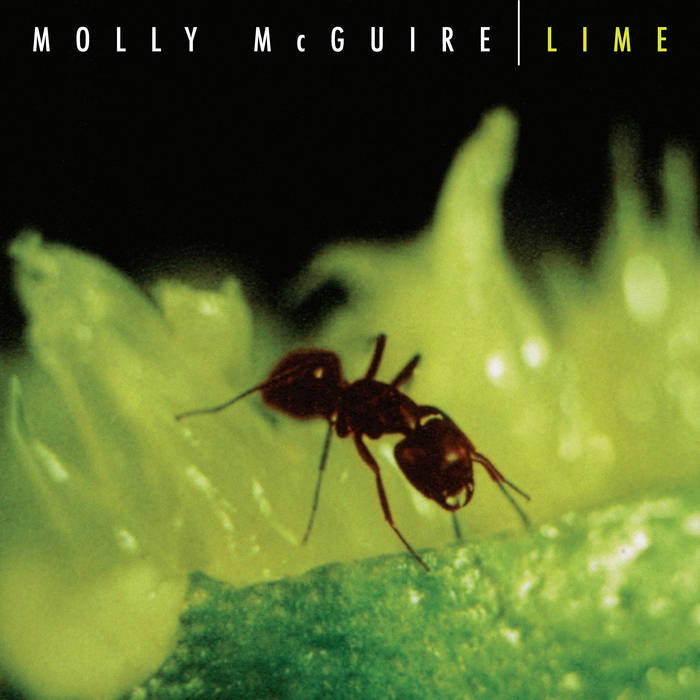Delta Sleep – Blue Garden | Album Review
/Wax Bodega
If you look at practically any era of human history, the one constant is conflict. The difference between years past and present is our immediate access to that conflict at any given moment. A harrowing number of atrocities can be viewed almost in real-time with the swipe of a finger, and it can be hard not to let it all crash down on you. Like many others, I tend to use music as a sort of umbrella to protect myself from the torrential downpour of bad news. While art can be used as a form of escape, its primary function is to spark engagement with listeners and examine ideas in our world that might otherwise be left to the wayside. That’s where UK-based rock outfit Delta Sleep’s latest record, Blue Garden, thrives, as its intellectual form is ready to invite listeners into some conversations they may not be expecting.
Blue Garden is unequivocally Delta Sleep’s heaviest album to date, with harrowing lyrical depictions in the songwriting and grungier instrumentation than records past. The first offering from the record came in the form of a mini-documentary for Blue Garden’s opener, “Dawn,” which blends archival footage and modern sources to depict the Israeli occupation of Palestine. The video is underscored by the stripped-back, atmospheric track, with lyrics such as “Can’t say that you're a leader when there's bloodshed in your sight,” taking aim at the systems that allow the continuing genocide to happen.
In the context of the album, “Dawn” lands a successful one-two punch with a flawless transition into the much more bombastic “Slow Burn.” Lyrically, there’s a sense of despair that permeates in vocalist Devin Yüceil’s delivery in both tracks, but while “Dawn” makes a direct attack on those turning a blind eye to the atrocities of the modern world, “Slow Burn” becomes an introspective examination of the helplessness and the guilt that we all feel. The duality of these opening tracks acts as a compelling juxtaposition of stasis and how it manifests in our internal workings, depending on whether or not we choose to accept it.
The guitar tones, especially on the front half of the record, are coated with a light sheen of distortion and fuzz, with tracks like “Slow Burn” and “Toe Stepper” feeling more adjacent to grunge and shoegaze than Delta Sleep’s previously bread and butter of math rock. There are certainly moments of irregular time signatures, such as “The Distance” and bits of “A Casa,” for those seeking a hit of the band’s jazzier side. For me, math rock has always been a sort of paradox in terms of enjoyment: I’ve always appreciated and admired how artfully constructed the songs can be, but it usually feels like I’m one zoned-out second away from falling off the saddle. I can’t deny how impressive the guitar passages are, but damn, they can be hard to follow sometimes. Thankfully, Yüceil’s melodic voice brings you back into the reality of the track, which keeps it from getting completely lost.
What makes Blue Garden work for me as a cohesive record is how easily it transitions between the chaotic moments and its more intimate passages, and a lot of this is due to the cohesion of the interludes. I’m a sucker for a good interlude, especially if they serve an actual purpose instead of padding out the tracklist. “(light)” and “(night)” accomplish just that, as their specific placement on the record gives Blue Garden the shape of a three-act movie. Each of these interludes gives way to a broader song, with the specific transition from “(light)” to “Glow” feeling like a bridge between two sections of someone’s life. “Glow” highlights some comfortable, atmospheric textures that contrast with the more rambunctious first leg of the record. The track phases in and out of conversation between the instruments and the vocals, introducing a fuzzed-out guitar towards the middle that feels like it’s translating the words into an almost alien language.
If you were looking for a song on this record to recommend to someone who wasn’t totally familiar with the specific genre nuances that Delta Sleep plays with, I would undoubtedly point you to the record’s second single, “Figure In The Dark.” This is one of the more straightforward cuts on the album, as it fits more closely into an emo, indie-rock sound if you had to give it a name, but the core of the track is much more upbeat than the lyrics would have you believe. On the flip side, there’s the mystical cut “Illuminator,” which is easily the most interesting song on the album to pick apart musically. There’s this backing synth about two-thirds of the way through the track that leads to the song's conclusion, bringing an ominous backdrop to an otherwise energetic guitar pattern and drawing more interest to what this newer element will build towards. What drove me crazy, on the other hand, was how there was so much going on within the first minute or so, and I just kept waiting for the payoff that never seemed to properly arrive.
The final leg of Blue Garden finds its footing in its lyrics, starting with the cut “Sl_ck_rs,” which circles back to the harrowing ordeals that inspired the conception of this record. Yüceil wails a desperate warning of our planet’s destruction within the chorus:
And if we can’t fix the leak
Well then we might have made this our last century
And thrown away the chance to be
Better together
The penultimate track, “A Casa,” presents a form of introspection, shifting the focus inward with the themes of exploring your mentality within the destruction of the world around you. The band takes a triumphant step into the light in the final moments of the album with the song “Sunchaser.” Normally, I’m not the biggest fan of when bands drop the record’s closing song as a single, especially the first one, because it feels like you’re giving away the ending of a movie. However, this may be a rare exception, as the progression of the track and the lyrics become a sort of thesis for the entire project. The closer eases its way in with a math-rock-inspired riff before crashing down with drums and cathartic vocals about “Seeing you when the sun is shining.” There is so much darkness in the world, but living life without hope for the future or a shining sun to meet under only makes the world that much darker.
There’s a depth towards these moments that bring out an empathetic edge the album cleverly disguises as despair. Instead of purely relinquishing ourselves to an uncontrollable learned helplessness in every waking moment, Blue Garden invites listeners to feel everything through a diverse sonic landscape of math-rock, forays into emo territory, and splashes of indie. Part of being human is the ability to have these nuances throughout our synapses, and the four musicians of Delta Sleep know it all too well. There is a future out there, and as Delta Sleep puts it, “Maybe it’ll be worth finding.”
Samuel Leon (they/he) is a Brooklyn-based music photographer, playwright, and performer. Sam writes plays about music but not musicals. Sam doesn’t like using the internet, but they will if they have to. If you are even remotely close to Brooklyn and want Sam to make you look cool on camera, hit them up on @sleonpics. They also have bad takes on Twitter @samislosingit.







